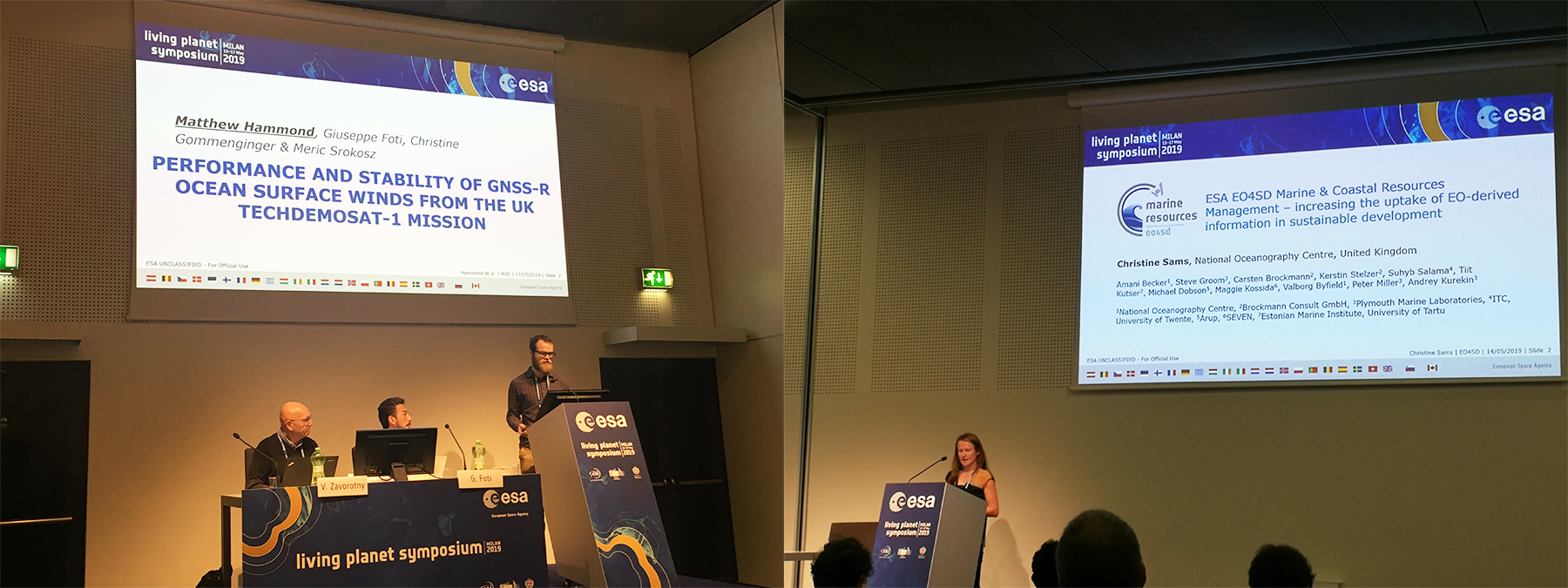National Oceanography Centre Satellite Oceanography was out in force last week at the European Space Agency’s Living Planet Symposium in Milan, Italy.
The symposium, which takes place every three years, gathered over 4000 participants from across the world and represents the largest international conference on Earth Observation ever to date.
The NOC’s contributions to the symposium consisted of presentations on many topics including a keynote talk by Christine Gommenginger in the Ocean Science Grand Challenges Agora session on ‘Ocean Motions large and small: Known knowns and unknowns’; presentations in the ‘Advances in Earth Observation with GNSS Reflectometry from Space’ session (convened by Giuseppe Foti) by Matthew Hammond and Giuseppe Foti on GNSS-Reflectometry for wind and sea ice observing (in partnership with Surrey Satellite Technology Ltd).
NOC colleagues also delivered three talks on the exploitation of Earth Observation for Sustainable Development by Val Byfield, Christine Sams, Amani Becker, Clive Neil and Angela Hibbert (in partnership with SatOC Ltd, PML and Brockmann Consult GmbH); contributions on Cryosat-2 and Sentinel-3 ocean altimetry by Chris Banks, Nadim Dayoub, Francisco Calafat and Helen Snaith (in partnership with Skymat Ltd); first assessment of the Climate Change Initiative products for Sea Surface Salinity by Adrien Martin and Simon Josey (in partnership with LOCEAN, Ifremer and ARGANS Ltd); and of the ESA Ocean Surface Current Airborne Radar (OSCAR) demonstrator by Adrien Martin (in partnership with MetaSensing, Starlab and ICM-BEC).

Satellite Oceanography at the NOC
Satellite Oceanography research at the NOC is concerned with measuring exchanges between the atmosphere, ocean, and the marine biosphere in order to better predict the response of the marine system to climate change. We contribute towards developing and sustaining cost-effective observations of the global and coastal ocean so as to deliver state-of-the-art operational oceanography and environmental monitoring. The NOC engages and collaborates widely with space agencies and the space sector internationally, and its activities drive forward the development of sensors and satellite missions relevant to NERC marine science objectives.
Find out more on our Marine Physics and Ocean Climate pages.

